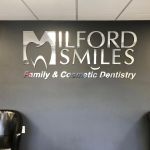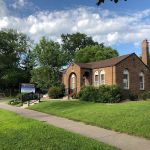How to Prevent Tooth Decay and Gum Disease in Seniors
As we age, maintaining good oral health becomes even more crucial. Tooth decay and gum disease are common issues among seniors, but the good news is that they are largely preventable. Throughout my years of learning about dental health and from personal experiences, I've found that simple steps can go a long way in maintaining a healthy smile well into your golden years. In this article, I will share practical tips on how to prevent tooth decay and gum disease in seniors, backed by professional insights and real-life stories.
1. Understanding the Risks: Why Seniors Are More Prone to Dental Issues
Before diving into prevention, it's important to understand why seniors are more vulnerable to tooth decay and gum disease. As we get older, several factors come into play. First, the natural aging process can cause our gums to recede, exposing parts of the teeth that are more susceptible to plaque buildup. Second, many seniors take medications that can reduce saliva flow, leading to dry mouth, which in turn increases the risk of cavities and gum infection.
1.1 The Impact of Dry Mouth
Dry mouth, a common side effect of various medications, can make it more difficult to wash away food particles and bacteria from the mouth, leading to tooth decay and gum problems. I personally noticed how dry mouth became an issue after my mother began taking certain medications for high blood pressure. She found it harder to keep her mouth moist, and this prompted a greater need for daily hydration and special care.
2. Brush and Floss Regularly: The Foundation of Oral Health
One of the most effective ways to prevent tooth decay and gum disease is maintaining a consistent and thorough oral hygiene routine. Brushing your teeth at least twice a day with fluoride toothpaste is essential. I’ve always recommended that seniors use a soft-bristled toothbrush to avoid causing any damage to sensitive gums.
2.1 The Importance of Flossing
Flossing may seem tedious, but it’s one of the most important aspects of dental hygiene. It removes food particles and plaque between teeth, where a toothbrush often can’t reach. When my father was recovering from a long illness, I made sure to remind him to floss regularly. It made a huge difference in preventing gum disease, even when he wasn’t able to brush as thoroughly due to fatigue.
2.2 Choosing the Right Toothbrush
For seniors, selecting a toothbrush that’s easy to handle and gentle on the gums is key. I’ve found that electric toothbrushes are particularly effective in ensuring thorough cleaning, especially for those with limited dexterity. Some models even have built-in timers to help seniors brush for the recommended two minutes.
3. Regular Dental Checkups: A Must for Seniors
Even with a good at-home oral hygiene routine, nothing beats regular visits to the dentist. As a senior, it’s important to see a dentist at least once every six months for a checkup. Routine exams allow the dentist to catch early signs of tooth decay or gum disease before they become serious problems. During one visit with my grandmother, the dentist identified gum recession that was starting to develop, and with some early intervention, we were able to reverse the damage before it progressed.
3.1 Professional Cleaning and Early Detection
Professional cleanings are essential for removing plaque buildup that can lead to gum disease. I’ve always been impressed by how effective these cleanings are in maintaining long-term oral health. Early detection of problems like cavities or gum pockets also means quicker treatment and less discomfort later on.
4. Maintaining a Healthy Diet for Strong Teeth
Your diet plays a significant role in maintaining good oral health. As we age, our bodies become less efficient at absorbing nutrients, which can affect the health of our teeth and gums. I’ve observed that seniors who consume a balanced diet rich in calcium and vitamin D tend to have stronger teeth. Foods like leafy greens, cheese, and almonds are great for keeping teeth strong and healthy.
4.1 Limiting Sugary Snacks and Drinks
One of the biggest culprits in tooth decay is sugar. For seniors, it's especially important to limit sugary snacks and drinks that can contribute to plaque buildup. I’ve seen firsthand how reducing sugary sodas and sweets helped my elderly aunt improve her gum health. Replacing sugary snacks with healthy alternatives like fresh fruits or unsweetened yogurt can make a noticeable difference.
5. Managing Health Conditions That Affect Dental Health
Certain health conditions like diabetes, heart disease, and osteoporosis can impact oral health. Seniors with these conditions need to pay extra attention to their dental care. For instance, diabetes can lead to dry mouth and increase the risk of gum disease. After learning that my father had developed type 2 diabetes, we worked closely with his dentist to ensure that his oral health was carefully managed alongside his other health needs.
5.1 Medication and Oral Care
If you're taking medications, it’s important to consult with your dentist about how they might affect your oral health. Some medications can cause side effects that increase the risk of tooth decay or gum disease, as I learned when my mother’s blood pressure medication started affecting her mouth. The dentist helped us find ways to address the dry mouth and prevent further dental issues.
6. Special Oral Care Products for Seniors
There are many products on the market specifically designed for seniors that can help with their unique dental needs. Special toothbrushes, toothpaste with added fluoride, and mouthwashes that help with dry mouth are just a few options. I recommend looking for products that cater to the elderly and are specifically formulated to address common issues like gum recession and sensitivity.
6.1 Using a Mouthwash for Dry Mouth
For seniors who suffer from dry mouth, using a mouthwash designed to combat this condition is essential. I've found that alcohol-free mouthwashes help keep the mouth moist without causing irritation. This was especially helpful for my father, who struggled with dry mouth due to his medication.
6.2 Finding Toothpaste for Sensitive Teeth
If you have sensitive teeth, as many seniors do, using a toothpaste formulated for sensitivity can reduce discomfort and help protect tooth enamel. I recommend consulting with your dentist to find the best toothpaste for your specific needs.







 Dooley Dental: Edward J Dooley DMD, Dr Robert Scheddin DMD4.0 (162 review)
Dooley Dental: Edward J Dooley DMD, Dr Robert Scheddin DMD4.0 (162 review) DentalWorks & Orthodontics Aurora4.0 (308 review)
DentalWorks & Orthodontics Aurora4.0 (308 review) Dr. Jody Z. Bardash, D.M.D.4.0 (29 review)
Dr. Jody Z. Bardash, D.M.D.4.0 (29 review) Milford Smiles4.0 (547 review)
Milford Smiles4.0 (547 review) Franco & Associates Family and Cosmetic Dentistry4.0 (172 review)
Franco & Associates Family and Cosmetic Dentistry4.0 (172 review) Spartan Dental4.0 (222 review)
Spartan Dental4.0 (222 review) The Importance of Oral Health Education During Pregnancy for a Healthy Pregnancy
The Importance of Oral Health Education During Pregnancy for a Healthy Pregnancy Best Tips for Brushing Your Teeth Properly for Healthy Gums: Essential Techniques for Oral Health
Best Tips for Brushing Your Teeth Properly for Healthy Gums: Essential Techniques for Oral Health Why Skipping Dental Checkups Can Lead to Bigger Oral Health Problems
Why Skipping Dental Checkups Can Lead to Bigger Oral Health Problems Advantages of Porcelain Dental Restorations
Advantages of Porcelain Dental Restorations How Can Diabetes Cause Tooth and Gum Problems? Preventing and Managing Oral Health Issues
How Can Diabetes Cause Tooth and Gum Problems? Preventing and Managing Oral Health Issues Healthy Habits for Promoting Good Oral Health and Hygiene: Tips for a Healthy Smile
Healthy Habits for Promoting Good Oral Health and Hygiene: Tips for a Healthy Smile